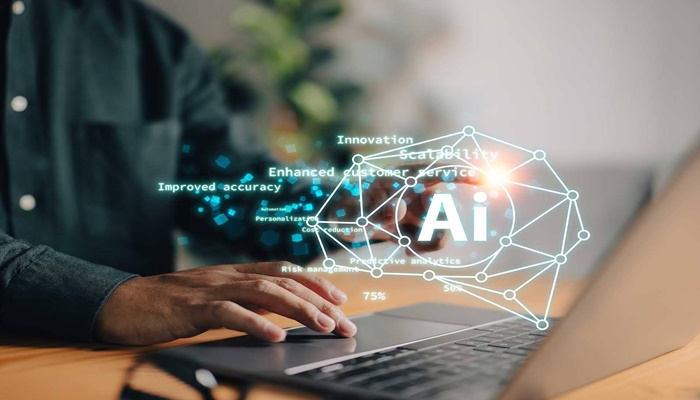The threat of AI taking over jobs is becoming increasingly real. Amazon CEO Andy Jassy recently told employees that as AI takes on more tasks in the coming years, the nature of work at Amazon will change, potentially reducing the number of corporate roles.
“As we roll out more generative AI and agents, it should change the way our work is done. We will need fewer people doing some of the jobs that are being done today, and more people doing other types of jobs,” he said.
This shift is beginning to put tangible pressure on undergraduate students who are already worried about their job prospects.
A report from San Francisco-based venture firm SignalFire shows that major tech companies—including Google, Amazon, Apple, Meta, Microsoft, NVIDIA, and Tesla—have cut fresh graduate hiring by over 50% since 2022. The sharp decline has left many students anxious about their careers.
In a recent video titled The Truth About AI and Jobs, LinkedIn co-founder Reid Hoffman addressed these concerns. Regarding AI and skills development, Hoffman said that prompting with AI tools like ChatGPT is still in a primitive stage.
“Right now, no one is prompting in particularly good ways. We’re all like 5% users,” he said, while advising students to learn not just how to prompt, but how to apply AI to real problems. “The question is not just ‘am I prompting’, but ‘which problems could AI be applied to in ways that are interesting and unique?’”
For those feeling discouraged about entering the workforce with limited experience, Hoffman framed AI as a potential advantage rather than a threat. “You are generation AI. You are AI native. That makes you enormously attractive in this environment,” he said.
Replying to a student from Oxford, who was unsure about accepting a job she didn’t love, Hoffman said, “Doing a job versus not doing a job is always a better way to ultimately be getting to a much better job two, five, ten years out.” He added that while passion matters, early career choices should be seen as strategic steps.
“You’re sometimes mistaught that you should only be looking for what you’re passionate about…The key is to be strategic.”
AIM reached out to a few undergraduate students to understand how they view AI. Shrravan K, a third-year BTech mechatronics student at MIT, Manipal, told AIM that, at least for now, he believes AI will definitely create more job opportunities. “When it comes to development, nothing can be said about the distant future just yet,” he added.
He made it clear that he isn’t particularly worried, as he believes AI will generate more job opportunities in the tertiary and quaternary sectors. However, he acknowledged that labourers in repetitive or low-supervision roles might lose their jobs, as AI can perform these tasks more efficiently and even correct its own mistakes.
Sankalp Gupta, a second-year Physics student at Cornell University, told AIM that he hasn’t observed much concern among physics undergrads about AI taking over jobs, especially in academia, where research and ideation dominate.
He believes that generating new ideas, which is a key part of physics research, is still beyond current AI capabilities. “In coming up with new ideas, which is 70% to 80% of research, that is not affected by what AI does,” Gupta said. He added that students mainly use ChatGPT to write and refine code for analysing data.
What are Tech Leaders saying?
Similarly to what the students mentioned, Infosys founder Narayana Murthy is optimistic about AI and sees it as a driver for the growth of the Indian IT industry, even as concerns about slowing growth and job losses persist. Murthy shared that using tools like ChatGPT has increased his productivity fivefold.
“This whole fear that technology will take away jobs is not right. It will create a different kind of job. For example, what I found in using ChatGPT for my speeches was the following: the smartness is in providing the requirement definition for my speech. The smartness is in asking the right question,” he told Moneycontrol in an interview.
Hoffman’s statement comes against the backdrop of other industry leaders raising concerns about AI taking over many job roles. In a recent interview with CNBC, Dario Amodei, CEO of Anthropic, issued a stark warning about the potential labour market disruption caused by AI, predicting that up to 50% of entry-level white-collar jobs could disappear in the next five years. He said this shift could push unemployment rates to between 10% and 20%
On the other hand, NVIDIA chief Jensen Huang dismissed Amodei’s predictions. While he acknowledged that some jobs may become obsolete, he added that AI will also create new opportunities. “Whenever companies are more productive, they hire more people.” He sees a future where workers act as “HRs of AI agents”, using AI to better their roles rather than replace them.
Meanwhile, OpenAI CEO Sam Altman acknowledged that, judging by a historical pattern of technological change, while AI will eliminate some jobs, it will also create some new ones. However, he explained that what’s different now is the unprecedented speed at which this transformation is expected to occur.
At the Snowflake Summit 2025, Altman said, “Today AI is like an intern that can work for a couple of hours, but at some point it’ll be like an experienced software engineer that can work for a couple of days.”
In a recent podcast, Demis Hassabis, CEO of Google DeepMind, said AI will transform the job market. It will likely follow the historical pattern where new and often better roles emerge alongside disruptive technologies.
“New jobs are created that are actually better, that utilise these tools,” he said, referencing past shifts brought about by the internet and mobile. He advised undergraduate students to deeply immerse themselves in understanding using the new AI systems. “It’s still important to study STEM and programming…so that you understand how they’re built,” he said. Hassabis added that those using AI tools could become 10 times more productive.
Google CEO Sundar Pichai also thinks the same. According to him, AI won’t take away jobs, but rather make employees more productive. “I expect we will grow from our current engineering phase even into next year, because it allows us to do more,” he said.
He added that AI is acting as an “accelerator” by handling repetitive tasks, which allows engineers to focus on more meaningful problems. This rise in productivity, he noted, could lead to more hiring as Google scales product development.
What Now?
For recent graduates, the key lies in embracing AI as a tool, upskilling in relevant technologies, and honing human-centric skills. While AI may disrupt traditional career paths, it also opens doors to new possibilities, provided the next generation is ready to step through.
For instance, Hoffman also touched upon how AI is reshaping specific job roles, such as web design. “The fact that you could produce the ‘website design coding for dummies’ book no longer matters as much, because AI can do all that,” he said. The value now lies in creativity and the ability to align design with broader business objectives.
When asked whether college degrees are losing relevance, Hoffman focused on the importance of adaptability. “It’s not necessarily the thing you learned in X101…it’s your capacity to learn.” He encouraged students to prioritise continuous learning over static skill sets.
He also stressed the importance of networks. “Life is a team sport, not just an individual sport.” Maintaining peer relationships and building new ones can help students access new opportunities and share resources as the job market evolves.
Source – https://analyticsindiamag.com/global-tech/ai-just-killed-the-graduate-job-market-now-what/




















